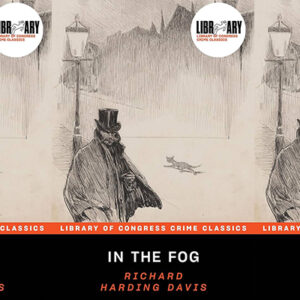Here are some of the trickiest pitfalls to sidestep while crafting your novel. Remember, in each pitfall to be avoided is also an opportunity to be seized.
Don’t set the stakes too low.
Something vital has to be at risk. Anything from one person’s life to the survival of all humankind.
Don’t wait. Hook your reader immediately. Maybe with a bang.
My name was Salmon, like the fish; first name, Susie. I was fourteen when I was murdered on December 6, 1973. In newspaper photos of missing girls from the seventies, most looked like me: white girls with mousy brown hair.
The beginning of The Lovely Bones by Alice Sebold draws you right in with a startling detail that throws you off balance. So does the iconic opening of 1984 by George Orwell: It was a bright cold day in April, and the clocks were striking thirteen.
How can you start your thriller in a way?
Don’t write one-dimensional protagonists.
Jason Bourne doesn’t know where he is from nor how he became who he is. Lisbeth Salander of The Girl with the Dragon Tattoo is complex, enigmatic, with a troubled past. Ditto Camille Preaker in Gillian Flynn’s debut novel, Sharp Objects. And then there is Stephen King’s Carrie: humiliated, vengeful, powerful. And dozens more.
Which leads to…
Don’t forget to give your protagonist an “arc.”
The most satisfying arc is one that brings out some positive aspect of the protagonist that he/she has suppressed. How do you do this? By making the protagonist confront obstacles and choices. Screenwriting guru Robert McKee, in his great book Story, puts it this way: “True character us revealed in the choices a human being makes under pressure—the greater the pressure, the deeper the revelation, the truer the choice to the character’s essential nature.”
Don’t have mildly dangerous villains.
Yes, whatever his or her flaws, the protagonist must be powerful enough to drive the story. But the villain must be—or at least seem to be—even more powerful.
Hence Hannibal Lector. Hence Karla, the Soviet spymaster in many of John LeCarre’s novels. Hence Anton Chigurth, the hitman in Cormac McCarthy’s No Country for Old Men. (In the name Chigurth, I hear echoes of Cthulhu, the octopus-like monster created by H.P. Lovecraft.) Hence Michael Crichton’s velociraptors. They’re really powerful.
Don’t forget: A human villain is still human.
Hannibal Lector is intelligent and cultured, terrifying and captivating. He is a psychopathic serial killer and cannibal and he is a man who, as a boy, witnessed the murder of his sister. His evil actions come from this trauma. But remember; To understand all is not to forgive all. Hannibal Lector must pay for his crimes.
Don’t be predictable. Upset expectations.
William Goldman, novelist (The Princess Bride and Marathon Man) and Oscar-winning screenwriter (Butch Cassidy and the Sundance Kid and All the President’s Men) said, “Give the reader what they want, just not the way they expect it.”
Don’t be pedestrian. Make your language pop.
There is something to be said for deadpan prose, especially if your hero is a classic, hardnose stoic. But wherever possible, liven up your prose. In Farewell, My Lovely, Raymond Chandler writes, “It was a blonde. A blonde to make a bishop kick a hole in a stained glass window.”
What a great mental picture: the window is colorful, the blonde is colorful.
Write colorful.
Don’t let your story drag or sag.
Advice from Chandler: “When in doubt, have a man come through the door with a gun in his hand.” Keep things coming at your characters. And keep your story suspenseful, a page-turner, make the reader think “I gotta know what happens.”
So how do you create suspense?
In an op-ed in the New York Times on December 8, 2012, Lee Childs answers this question. I urge you to find and read the whole piece. Here is the crux of it:
“How do you create suspense?” has the same interrogatory shape as “How do you bake a cake?” And we all know – in theory or practice – how to bake a cake. We need ingredients…and we are led to believe that the more thoroughly and conscientiously we combine them, the better the cake will taste…So writers are taught to focus on ingredients and their combinations…sympathetic characters… (plunged) into situations of continuing peril…
But it’s really much simpler than that that. “How do you bake a cake?” has the wrong structure. It’s too indirect. The right structure and the right question is: How do you make your family hungry?
And the answer is: You make them wait four hours for dinner.
Don’t let the twist be obvious. But don’t let it come out of left field.
The reader should say, “Wow! I didn’t see that coming!” And then, “But, yeah, now that it’s happened…of course, makes perfect sense.”
Don’t reliably be reliable.
Gillian Flynn’s Gone Girl alternates between Nick and Amy Dunne each telling the story—and each is an unreliable narrator. Paula Hawkins’ The Girl on the Train uses a first-person narrative from Rachel Watson (the chief protagonist), Anna Boyd/Watson and Megan Hipwell. All three are unreliable.
In any thriller, the only person the reader should rely on is the author…rely on him or her to deliver a satisfying story. And remember, there is no such thing as a cookie-cutter unreliable narrator. Paula Hawkins says, “Amy Dunne is a psychopath, an incredibly controlling and manipulative, smart, cunning woman. (Rachel is) just a mess who can’t do anything right.” Consider creating your unreliable narrator(s).
Don’t guess what you’re writing about. Know the place and its people.
Elmore Leonard knew Detroit first-hand. But for his novels Pronto and Riding the Rap, set in Harlan County, Kentucky, he did a lot of research. How accurate is the F/X series Justified, based on those novels? The series creator gave his staff wrist bands bearing the initials WWED—meaning, “What Would Elmore Do?” Meaning, in times of doubt, trust the writer.
Research and write so you earn the reader’s trust.
Don’t settle for an overworked setting. Find a place that you can own.
This is especially true if you’re writing a series. Tony Hillerman owns the Navaho lands. James Lee Burke owns the Texas-Louisiana Gulf Coast. George Crumley owns Montana. Elmore Leonard owns Detroit. Elmore Leonard also owns Miami…Carl Hiassen owns bizarre Florida…Tim Dorsey owns even more bizarre Florida. Robert Parker owns Boston…Dennis Lehane owns the rougher, blue-collar Boston. Ralph Dennis (admittedly less well known) owns Atlanta seen by an unlicensed PI and his hired muscle…Karin Slaughter owns Atlanta seen by an agent in the Georgia Bureau of Investigation. Martin Cruz Smith owns Moscow. Stieg Larsen owns Sweden. Jo Nesbo owns Norway.
There are dozens more author-owned places but not every good place has been grabbed. For example, nobody yet really owns Las Vegas. Maybe you could try to?
Or find a milieu that you can own.
For example, within pre-World War II Europe, within the moral ambiguity of that time and place…In his Berlin Noir series, Philp Kerr owns Berlin. In his thrillers, Alan Furst owns all of pre-World War II Europe. Be ambitious.
If you can’t find a place to own, create one. But base it on facts.
In The Andromeda Strain, Michael Crichton created a secret underground laboratory to handle lethal microorganisms. He says, “A lot of Andromeda is…trying to create an imaginary world using recognizable techniques and real people.” In his Jurassic Park, Crichton created an environment based on what was known about dinosaurs a the time. In The Yiddish Policeman’s Union, Michael Chabon created an alternate history in which there is a thriving (and threatened) Jewish territory in Alaska. Like The Andromeda Stain and Jurassic Park, what makes this fiction believable is Chabon’s skillful use of facts.
Don’t forget other possible milieus. I’ve seized on biotechnology.
Studying biotechnology at Columbia, I was struck by the philosophical, moral and legal questions it raised, its potential to usher in new paradigms in our lives and in society, and the life-and-death stakes it could create for characters in a novel.
My first thriller, Living Proof, was about the implications of the criminalization of embryonic stem cell research. Now, in Baby X, I look at the implications of a medical breakthrough called IVG—in vitro gametogenesis—in which any two people on Earth could make a baby. What if a world-famous singer has some of his DNA stolen? From just a trace of saliva, left on a mic he sang into, could come sperm or eggs…
And definitely a thriller!
***


















